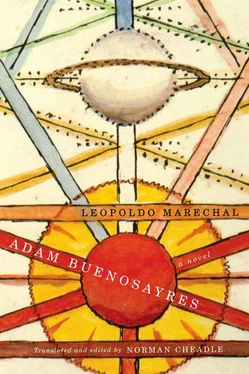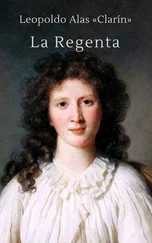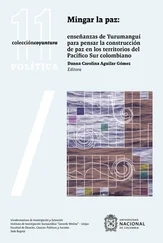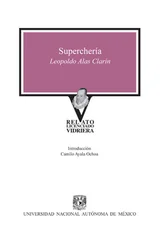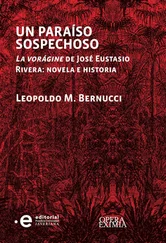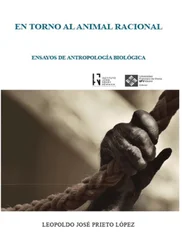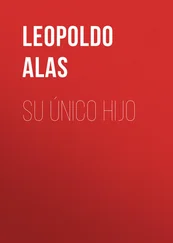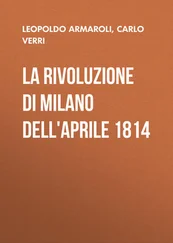As I was saying, Samuel Tesler righted his huge torso, crossed his arms, fixed his calm gaze on Adam, and apparently savoured the silence that sprang up between him and his visitor.
— Okay, he said finally. Why are you here bothering me in the wee hours of the morning?
Samuel’s serene face, his placid gesture, his mild voice, were not enough to put Adam at ease. He knew only too well the Protean virtues of that face, its wondrous capacity for metamorphosis, and how terribly quickly the dragon could rearrange his facial muscles to compose one face, then destroy it in a single breath to compose another, according to the changing circumstances of the battle. Knowing this, Adam Buenosayres decided to play along and humour him.
— The wee hours of the morning? he replied, feigning astonishment. The San Bernardo clock is striking noon!
— And what do your damned clocks have to do with me? Samuel protested sweetly.
Adam hesitated a moment. How to suggest to the dragon the subtle motive for his visit, without pronouncing the “name under reserve” or exposing his secret to the curiosity of another?
— The day is claiming you! he said at last in a solemn tone. The new day, too, wants to be on your blackboard!
— The day is claiming me? asked Samuel with dreadful innocence.
His dead eyes suddenly brightened: the straight line of benign malice deepened on his forehead, and a dangerous smile curved his lips. (“Watch out!” thought Adam.)
— Thursday, mused the philosopher. Of course, of course! It has to be Thursday. If anyone should be called Thursday, it’s the man who woke me up with no consideration whatsoever. 8
“Look out, look out!” said Adam to himself again. Samuel’s playing so much on the word Thursday had him on tenterhooks. Could he have guessed? He couldn’t have, he was still half asleep! Nevertheless, without letting his concern show, Adam put himself on alert. But now he watched as Samuel’s features were radically transformed. The fire in his eyes went out; the malicious line faded on his brow; his lips were expressionless. Now the philosopher showed him a different face, the sad and noble bust of the martyr.
— Yes, yes, he sighed. It’s God’s will that you can’t get any sleep in this bloody house.
Sprawled over the pillows, remorseful, easy of word, severe in mimicry, he continued:
— Do you think it’s right that just because I owe the Fat Lady a lousy three months’ rent, I shouldn’t be allowed to sleep in peace, as did all my ancestors from Pythagoras down to our friend Macedonio Fernández? 9
The eyes of the dragon — his docile, melancholy eyes — pleaded for a response. Adam was still uneasy, but determined to stick with him through all his transmutations, even if they outnumbered those of Ovid and Apuleius put together. So he answered:
— Bah! I don’t think it’s because you’re behind with the rent. Beneath the abundant boobs of Doña Francisca there beats a heart of gold, believe me. It’s her housewife morality that’s offended by your unholy habits.
Samuel Tesler listened to his visitor’s argument in disdainful silence, his mouth bitter, but his eyes meek and sad.
— Let’s take a closer look at Doña Francisca, persisted Adam in a grave tone. Let’s come down to earth, Eye of Baal! Doña Francisca had a husband — may he rest in peace — who used to get up every morning at five and go to bed every night punctually at ten. Doña Francisca’s spouse’s bowels — and the whole neighbourhood knew this — never failed to move at precisely six-thirty; you could set your watch by it.
— And could such a jewel of a man have died? an incredulous Samuel interrupted.
— He died prematurely, answered Adam sadly. Whom the gods love die young. 10
The look the philosopher gave his visitor was half approving, half anxious. In fact, he was regarding him as he would a disciple who was getting a little too big for his britches. Which only encouraged Adam, who continued:
— By her mathematical mate, Doña Francisca conceived two sons, Castor and Pollux, who maintain their father’s noble line. Both keep toothbrushes in the bathroom; Castor has a blue one, Pollux a dark red one. Faithful to the principles of modern hygiene, the two champions purge themselves “religiously” at the change of every season. It’s a known fact that the Company raised Castor’s salary less than two months ago, but it’s equally true that Pollux will be promoted up to Management as soon as his boss kicks the bucket. Unfortunately (and here Adam shook his head in dismay) the intellectual harmony between these two upright young men is not as perfect as their aggrieved mother might wish. They’re both cinephiles, but Castor’s favourite star is Bessie Love, while Pollux prefers Gloria Swanson. Fanatical soccer fans, Castor stands by the famous blue jersey of the Racing team; Pollux roots for the invincible San Lorenzo. Free of the scourge of illiteracy, Castor reads Crítica and Pollux La Razón .” 11
His benevolence exhausted, Samuel Tesler was showing signs of a vast discontent.
— But don’t get the idea, Adam advised him, that they’re a pair of innocent duffers. No! They also pay tribute to the night, to frenzy, to dissipation. Every Saturday night Castor and Pollux observe the following program. From nine till half-past midnight, movies at the Rivoli. At one in the morning, homage to Venus at the goddess’s temple on Frías Street. At two in the morning, chocolate y churros at the café Las Rosas. At two-thirty, back to the maternal hearth and home for restorative sleep.
His arduous portrayal of these characters finished, the visitor looked to Samuel for the praise he felt he’d earned. But the philosopher gave no sign of indulgence.
— Nice morality! he scoffed, his brow jutting forward in menace. A bunch of bourgeois slobs insulated in fat and conventionality!
And with all the dignity that his underclothes would allow, he added:
— I know the type! They seize the day by force and stuff it chock-a-block with their schemes and scams, their shouts and their farts. And then they’re surprised if the philosopher, excluded from the day, takes shelter in the sweet beneficence of the night!
He levelled a threatening finger at his visitor:
— Answer me this, since you’ve seen at least the cover of the odd book of metaphysics. What is the bird of the philosophers?
— The owl, Effendi, answered Adam.
— That’s right, the owl. The nocturnal bird par excellence .
And placing his right hand on his breast, he solemnly declared:
— Well, then, I am the owl.
Surprised but polite, Adam Buenosayres held out his hand to the owl who, with minimal fanfare, had just presented himself as such. But the owl was busy with the remainder of a half-smoked cigarette that now drooped from his lower lip, trying to light it and putting his nose in serious jeopardy in the process.
— And what is the most grossly diurnal bird? he asked once he’d achieved combustion. The bird that is fat and graceless like no other?
Adam didn’t answer.
— The hen! exclaimed the philosopher. The perfect symbol for Buenos Aires!
His eyes frolicked in a cruel dance. A deceitful smile crossed his belligerent features. Thus jovial and monstrous, Samuel exhibited a third face, no less formidable than the other two.
— The City of the Owl Against the City of the Hen , he recited cryptically.
— What’s that? Adam wanted to know.
— It’s the title of my work. I pluck the hen and toss it into the boiling pot of my analysis. I add the young cob of melancholic corn and a lively sprig of sarcasm…
— Altogether, a real criollo hash, said Adam scornfully. That’s our literature, all right!
Читать дальше
